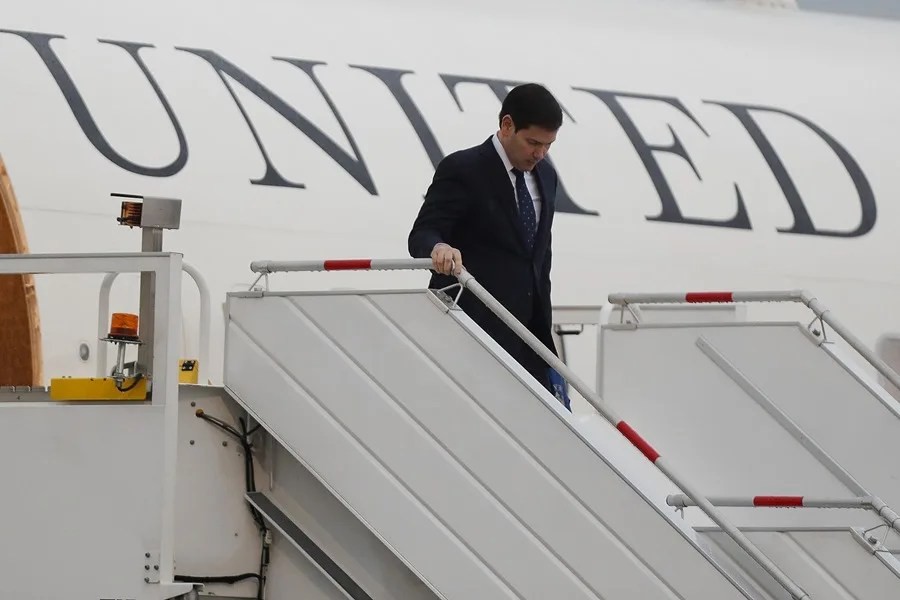Marco Rubio’s Visit to Ecuador: A Strategic Move in the Fight Against Transnational Crime
Marco Rubio’s visit to Ecuador underscores America’s commitment to national sovereignty and security by strengthening cooperation against criminal cartels threatening regional stability.

As Marco Rubio arrives in Quito for high-stakes talks with Ecuadorian President Daniel Noboa, the true battleground is clear: confronting the surge of transnational criminal organizations that threaten regional stability and, by extension, America’s national security.
Why Is This More Than Just a Diplomatic Visit?
Rubio’s arrival follows an intense series of meetings in Mexico, reflecting a concerted effort by the United States to forge stronger alliances in Latin America—alliances that cut through partisan politics and focus on protecting American interests abroad. While Washington often faces criticism for global interventions, here it is clear that backing Ecuador’s fight against cartel violence directly shields our southern flank from drug trafficking and organized crime.
Ecuador faces unprecedented challenges: 4,619 homicides in just six months—the highest ever recorded. President Noboa’s declaration of an “internal armed conflict” against criminal gangs—labeling them “terrorists”—is not mere rhetoric but a call for decisive action. Without this vigilance, chaos in Ecuador risks spilling into the hemisphere, exacerbating illegal immigration waves and cross-border drug flows that burden American families.
Does America Have a Clear Strategy or Just Empty Promises?
The reality is that the Trump-aligned administration of Daniel Noboa embodies America First principles by recognizing criminal syndicates like Tren de Aragua and the Cartel de los Soles as terrorist threats—paralleling U.S. designations. The extradition of José Adolfo Macías Villamar—the first such move under recent reforms—is proof of concrete progress where Washington-Ecuador cooperation yields tangible results. Moreover, the interdiction of cocaine-laden narcolanchas bound for North America showcases vital military and law enforcement coordination working beyond mere diplomacy.
However, questions linger about potential policy inconsistencies such as ongoing negotiations over tariffs imposed during previous administrations — will economic protectionism give way to fair trade policies supporting American jobs without compromising security priorities? And what should Americans make of Ecuador’s upcoming referendum on foreign military bases? Repealing prohibitions established under past leftist regimes could restore critical U.S. strategic posture in this pivotal region.
This visit could mark the turning point where shared values—freedom from violent cartel control, respect for sovereignty, and mutual prosperity—become more than slogans but actionable policy. But success depends on sustained commitment beyond photo opportunities and press releases.
The stakes are unmistakable: unchecked criminal networks south of our border jeopardize law-abiding Americans’ safety at home by fueling drug epidemics and migration insecurity. Supporting leaders like Noboa who adopt firm stances aligned with Trump-era policies is an investment in national defense disguised as foreign aid.
